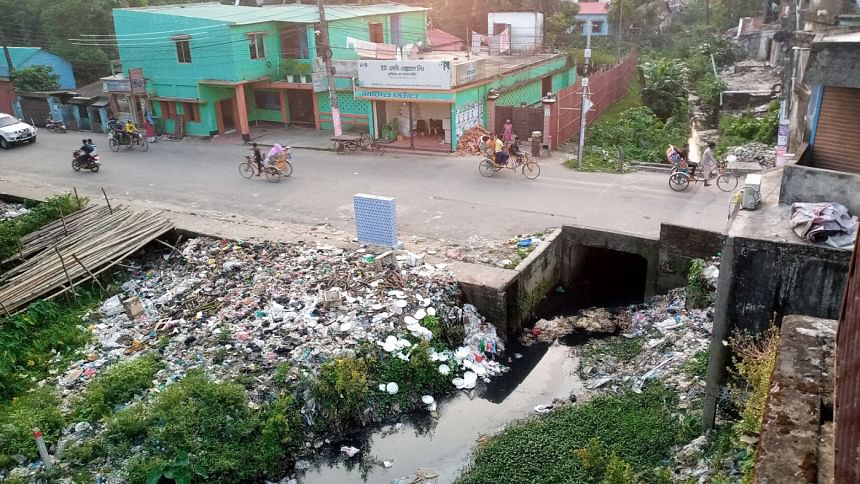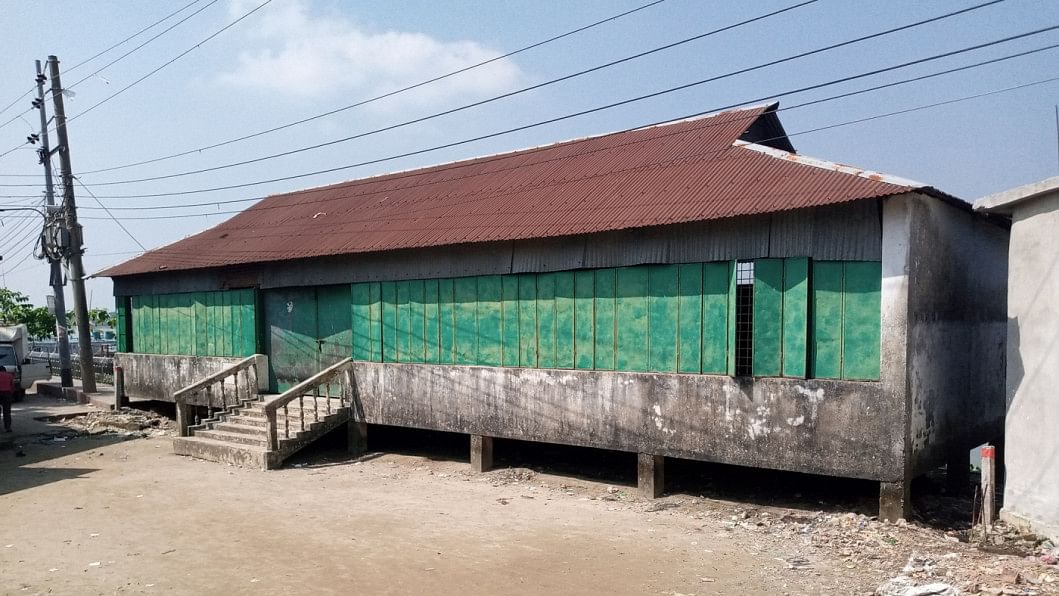Canals of Sunamganj dead and dying

The Sunamganj town has numerous waterbodies crisscrossing across it, including seven canals that flow through the low-lying land before joining the Surma river.
Over the centuries, these waterbodies have been a lifeline for the townspeople, as they relied on these for their livelihoods, including agriculture and fishing.
However, in the last four decades, rampant encroachment, grabbing, land filling, construction of roads, drains and culverts by the municipality, and other structures killed two canals, while the rest are also on deathbed.
As a consequence, on June 12 last year a flash flood from the upstream hit the town and inundated it completely.

Concerned residents opined that the canals' present situation played a major role in this regard.
Months after a High Court order, following a petition filed by Bangladesh Environmental Lawyers Association (Bela) in February this year, the administration acted to evict encroachers from the canals.
However, many illegally built structures still remain, while the land-filled parts of the canals were left untouched.
This correspondent recently visited the seven major canals in the town -- Teghoria, Barapara, Kamar, Balaikhali, Dhopakhali, Naluakhali and Gaborkhali -- to witness their present condition.
Of those, the 1,537-foot long Teghoria canal's origin from the Surma has been severed after the municipality constructed roads and drains on it.
The 2,005-foot long Barapara canal and 2,129-foot Kamar canal are also facing similar ordeals.
The 1,233-foot Balaikhali, 3,177-foot Dhopakhali, 1,802-foot Gaborkhali, and 2,079-foot Naluakhali canals have turned into narrow streams, choked by roads, culverts and drains constructed on it.
According to a report prepared by the union land office under Sunamganj Sadar upazila in July 2022, there were 79 listed grabbers of Kamar, five of Teghoria and two of Barapara canals at that time.
The HC on February 12 ordered the government to demarcate the canals as per their original flows, prepare a list of encroachers and structures, and remove them within six months.
However, even four months after the HC order, no action has been taken by the administration, while the municipality continued constructing drains on Barapara canal violating the court order.
Later, Bela on June 20 sent a legal notice to all respondents of the HC order, urging not to violate the court order and take necessary actions without delay.

After that, on July 15, the Suanamganj District Administration started an eviction drive at the canals and removed most of the permanent and temporary structures built by encroachers.
This correspondent observed that while different structures were removed from the canals, the already filled up areas still remain occupied, while the constructed roads, drains and numerous culverts continue to choke the canals' flow.
"Administrative drives should continue to remove all illegal grabbers while the canals must be dredged to protect the town from flash flood in future," said Bijon Sen Roy, general secretary of Haor Bachao Andolon.
Salehin Chowdhury Shuvo, executive director of HAUS, a development organisation, echoed the same.
"It took a legal notice, four months after the HC order, to start eviction drives. But still, they remain reluctant, while construction of drains on the canals continues," said Advocate Shah Shaheda Akther, regional coordinator of Bela.
Nader Bakth, mayor of Sunamganj municipality, said, "Presently, we do not have the budget to excavate and protect the canals. Only the Kamar canal has been included in a nationwide government project and we will start excavating it to make it navigable."
"We are also planning to dredge the canals and construct permanent walls on both sides. The plan will be pitched to the government after the upcoming national elections," he added.

 For all latest news, follow The Daily Star's Google News channel.
For all latest news, follow The Daily Star's Google News channel. 



Comments